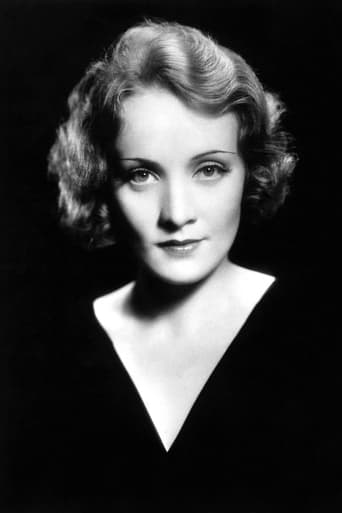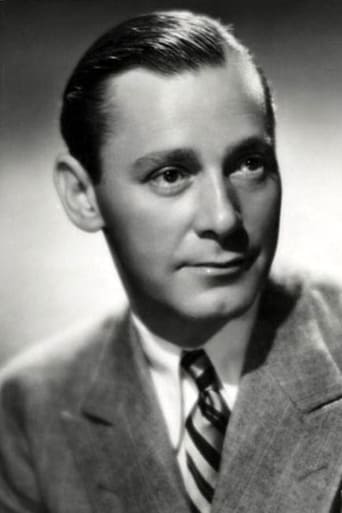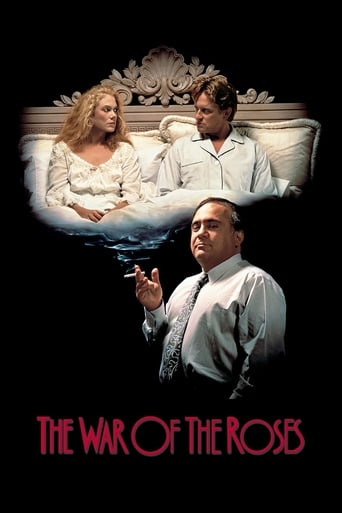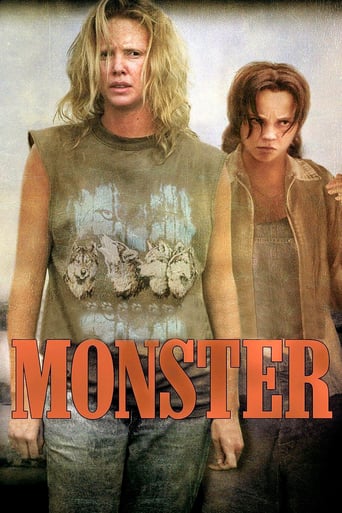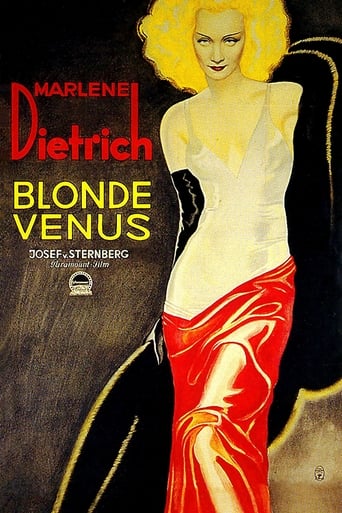
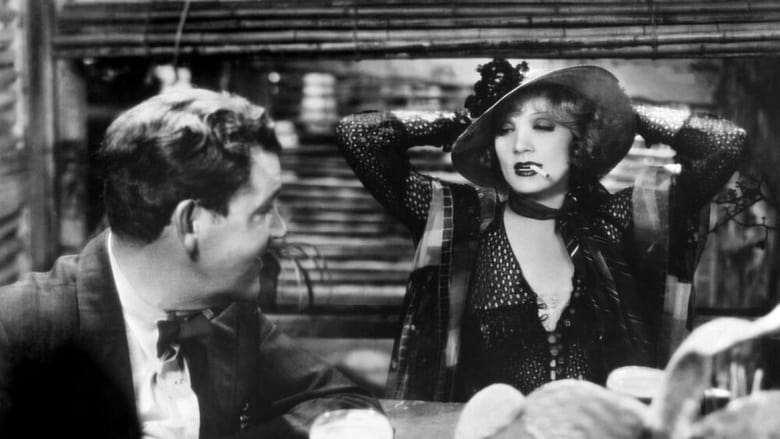
Blonde Venus (1932)
American chemist Ned Faraday marries a German entertainer and starts a family. However, he becomes poisoned with Radium and needs an expensive treatment in Germany to have any chance at being cured. Wife Helen returns to night club work to attempt to raise the money and becomes popular as the Blonde Venus. In an effort to get enough money sooner, she prostitutes herself to millionaire Nick Townsend.
Watch Trailer
Cast


Similar titles
Reviews
Redundant and unnecessary.
A lot of perfectly good film show their cards early, establish a unique premise and let the audience explore a topic at a leisurely pace, without much in terms of surprise. this film is not one of those films.
Like the great film, it's made with a great deal of visible affection both in front of and behind the camera.
A clunky actioner with a handful of cool moments.
Oh dear, only a couple of years on from the brilliance of The Blue Angel, Sternberg is back in the US and all the innocence has gone. All that beauty and charm, the wondrous and sexy costumes, the natural movement and the free actions, the whole 'I can't help it', has gone. Dietrich is all spruced up and got to act all 'mummy'. Needless to say there would have been problems with the Code but if the lovely, seeming, naked bathing at the start were allowed, surely there was no need to pile on the sentimentality so crudely. I guess it is clear she sleeps with Grant for money at the start and has to be seen to 'pay for it' but then why oh why have her go back to playing 'mummy' at the end? Very sad. The film itself as melodrama is okay, I suppose, but it could and should have been much more.
I'm not questioning what happened with "Blonde Venus." I'm asking a deeper question. Though I like many of today's stars, when you see a Dietrich or a Grant, they make the stars of today look like - well, I guess you'd say plain vanilla."Blonde Venus" stars the glorious Marlene Dietrich, a goddess if there ever was one, beautiful, glamorous, magnetic, leggy, with a beautiful speaking voice and a nice way with a line or a song. When the movie starts, she's a German cabaret singer, Helen Farraday, who is skinny-dipping with her colleagues when some hikers come by, one of whom is Ned (Herbert Marshall). They eventually marry and have a son (Dickie Moore).However, Ned develops radiation poisoning and needs an expensive treatment in order to be cured. To get the money, Helen returns to her life as a cabaret singer, and she becomes popular as the Blonde Venus. But the money isn't happening fast enough. She finally gets the rest of the money by taking up with the wealthy Nick Townsend (Cary Grant). He falls madly in love with her.When Ned returns cured and learns she was unfaithful, he intends to divorce her. Afraid of losing her son, Helen grabs him and leaves. She is constantly one step ahead of the police. Soon, she is unable to work as the police are haunting the cabarets, and she becomes destitute and likely a prostitute. When she is caught, she gives up her son to Ned, goes to Paris, and rebuilds her career.Helen ultimately reconnects with Nick, but she wants to see her child.Dietrich is dazzling, singing "Hot Voodoo," "You Little So-and-So," and "I Couldn't Be Annoyed." As Nick, Grant is not the Cary Grant that we knew later on; he hadn't yet invented his Cary Grant persona. He was not given much direction by von Sternberg, and frankly, doesn't make a huge impression. He did attribute von Sternberg for telling him to part his hair on the opposite side, which he did for the rest of his life.Dietrich's best scenes are with her son, but she gives a very sympathetic performance.So here's my question: What happened to personality in movies? In opera? We have great acting, versatility, wonderful singing, but it feels like what we once called star quality is gone. We still have interesting-looking people, but they're not usually stars, they're supporting players. Do audiences not want to make an emotional investment in a performer? I don't know. I only that Ayn Rand, though many people disagree with her philosophy, was prescient when, in The Fountainhead, she predicted the elevation of mediocrity. I don't blame the actors. I blame something else -- I just don't know what. Even though "Blonde Venus" isn't a great film, it features a larger than life star with larger than life looks. That's gone. As Bette Davis said, "Actors today want to be real. But real acting is larger than life."
Josef Von Sternberg really went over the top with this outrageous pre-code melodrama starring Marlene Dietrich about a devoted wife and mother (first seen as a single German girl swimming naked in a lake in her homeland) who becomes a kept woman in order to financially help her husband be cured of uranium poison. She later runs off with her son when he comes back and discovers her affair with Cary Grant, becoming a prostitute and later basically homeless in order to keep their whereabouts secret. She is forced to give him up, and is basically destitute when her fortunes turn and she becomes the singing toast of Paris. Von Sternberg lets Dietrich utilize every single emotion possible, running all over the world in every style, yet barely shedding a tear over all of heartache.Herbert Marshall is the unfortunate husband and Dickie Moore the toted kid. Grant's suave lover keeps getting the shaft as it is obvious where Dietrich's heart really is. She is the whole show, even performing in a gorilla suit she strips out of to sing "Hot Voodoo". Movie stills make this appear to be better than it is, its deliberate camp so obvious that you may laugh at it, not with it.Then, there is the editing, taking Dietrich down, down, down, ending up in a woman's shelter (15 cents a night) where she drunkenly stumbles in, tells off a bunch of old hags and stumbles right back out, and where do we see her next with no explanation of how she got there? Glamorously dressed to kill in Paris, of course, as famous as Josephine Baker. Only Von Sternberg and Dietrich could get away with this, style without substance and glamour without grace. The result is as phony as the curly blonde wig with arrows in it that she wears after stripping out of her gorilla fur.
Blonde Venus unfortunately turned out to be the one and only collaboration of Marlene Dietrich and Cary Grant. Sad to say though, Grant was not the lead here, just the other man who comes between Marlene and husband Herbert Marshall. There's no real chemistry in this one between any of the principal players and the best scenes are with Marlene and little Dickie Moore playing her son with Marshall.The best thing about Blonde Venus are Marlene's musical numbers and they're memorable because of the inimitable way she puts over a song. All Dietrich fans should treasure her Hot Voodoo number where Marlene has a gorilla suit on and does a sexy strip out of that costume and gives us a look at voodoo can do to us.But when its not showing Dietrich's legs off and her husky singing, the film is the story of a woman in love with two men. Husband Herbert Marshall is a research scientist who contracts 'radium poisoning' and needs money to go to Europe for a cure. Dietrich gets the money by doing some entertaining in a seedy dive where she comes to the attention of wealthy playboy Cary Grant. From there the plot progresses to the inevitable Hollywood conclusion with a script that was written by Joseph Von Sternberg who directed the film as well.Paramount was taking a shot in the dark here with radium poisoning gambit. The plain truth is they didn't know a whole lot about radioactivity then. The discoverer of radium Marie Curie did in fact die of cancer contracted from too much exposure to it. But one didn't just go somewhere for a miracle cure for that sort of thing.Herbert Marshall was always playing the injured party it seems in a whole lot of his films. He's well remembered for being Bette Davis's husband in The Little Foxes, a much better film than Blonde Venus. I also remember him in When Ladies Meet where he was cheating on Greer Garson with Joan Crawford and he went through the film with an air of innocence that you would think he was the party offended. Marshall had these roles down pat, but he had more to him in his acting repertoire.Even before The Code was put in place Paramount had a lot of trouble with the Hays Office in getting this one exhibited. Some changes were made that no doubt weakened the plot and the story. Marlene is basically in love with two guys at the same time and that was a no go back in the day.Blonde Venus didn't do that well at the box office, it was quite a let down from her previous film Shanghai Express. After this one she and Joseph Von Sternberg were separated and she did her next film, Song of Songs with Rouben Mamoulian.Blonde Venus is great Dietrich who's asked to carry a weak story.


